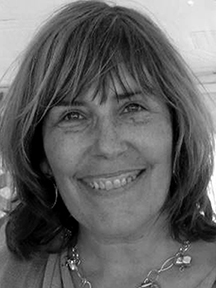 |
|||||||||||||||


Quiet Communities
Jamie Banks, Founder & President, Quiet Communities
Wednesday, February 11, 2026 at 7:00 pm
Register for Zoom Presentation
Jamie Banks
Jamie Banks, Quiet Communities’ (QC) Founder and President, is a health care and environmental scientist with an extensive background in health outcomes and economics, environmental behavior, and policy, who brings a multifaceted perspective to her work. In the decade since she founded QC, she has assembled a team of 40+ operational and advisory team members and has been responsible for overall strategic and operational planning, program and team development, research, educational initiatives, conferences, advisory services, customer acquisition, alliances, and business planning. She is the author of several peer review publications, a presenter at national and international scientific meetings, and an invited presenter at local, state, and federal government hearings.
During her career in health care, she held senior consulting positions at Abt Associates, Charles River Associates International, and ML Strategies, the consulting arm of Mintz Levin - working on new medical technologies, market opportunities, and economic value. In 2007, she turned her attention to environmental health and climate change, first founding Planet Rewards, a company pioneering a corporate platform to promote eco-friendly behaviors, and then founding Quiet Communities in 2013 to help find solutions to problems of harmful noise and pollution affecting communities. In addition to her role at QC, she chairs the Noise & Health Committee at the American Health Association (APHA) and is leading efforts to develop policy statements around noise and related pollution. The first APHA policy statement, Noise as a Public Health Hazard, was published in 2021. Jamie holds a PhD in Social Policy/Health Economics from the University of Kent, UK, and earned masters’ degrees from Dartmouth Medical School and MIT.Harm from noise, as affirmed by the American Public Health Association, is a public health crisis. Noise is known to cause severe cardiovascular impacts, to delay childhood development, to impact mental health, and lead to metabolic diseases. When noise is excessive and causes harm, it needs to be addressed. Quiet and natural soundscapes have become precious commodities. Leaf blowers, helicopters, tractors, chain saws, motorcycles, wood chippers, workplace machinery, traffic and airplanes are just a few sources of noise that are imperiling public health. OSHA notes that exposure to high levels of noise can cause permanent hearing loss. Neither surgery nor a hearing aid can correct this type of hearing loss. Short term exposure to loud noise can cause a temporary change in hearing (your ears may feel plugged) or a ringing in your ears (tinnitus). These short-term problems may go away within a few minutes or hours after leaving the noise. However, repeated exposure can lead to permanent tinnitus and/or hearing loss.
Loud noise can create physical and psychological stress, reduce economic and other productivity, interfere with communication and concentration, trigger PTSD and contribute to accidents and injuries by making it difficult to hear warning signals, but the problems with noise are not limited to the workplace. The effects of noise can be profound, affecting neighbors, communities and wildlife in the environment and causing psychological as well as physiological stresses. The little-known Noise Control Act was passed in 1972 but remains toothless years later despite 1990 amendments to the Clean Air Act where noise pollution is addressed in Part IV, §7641.
The health of more than 100 million Americans is at risk, with children among the most vulnerable. Noise-related costs range in the hundreds of billions of dollars per year. Yet, the United States has no federal standards for non-occupational noise exposure.
Watercolors by
Sarah Stapler
Sarah Stapler
